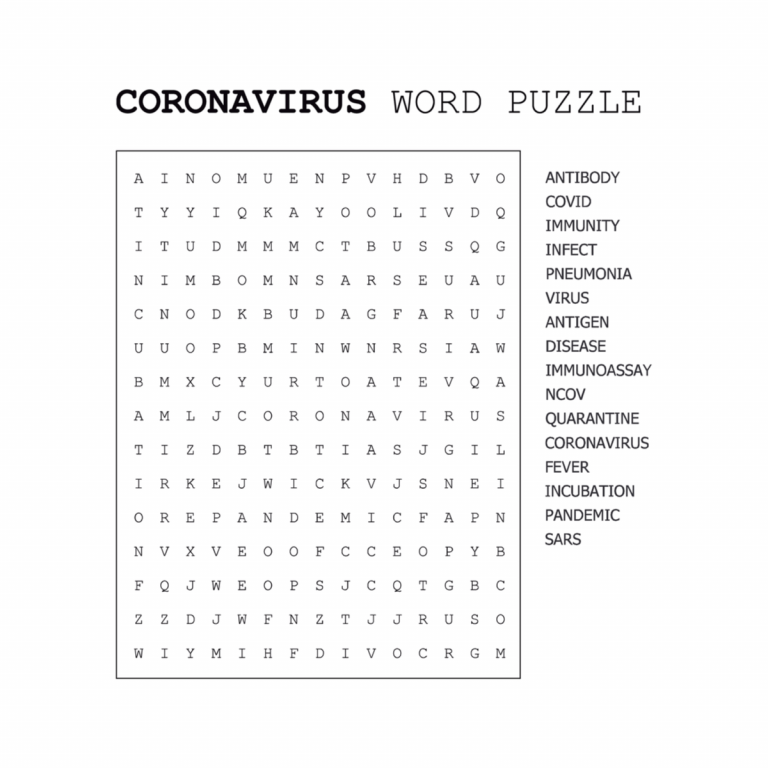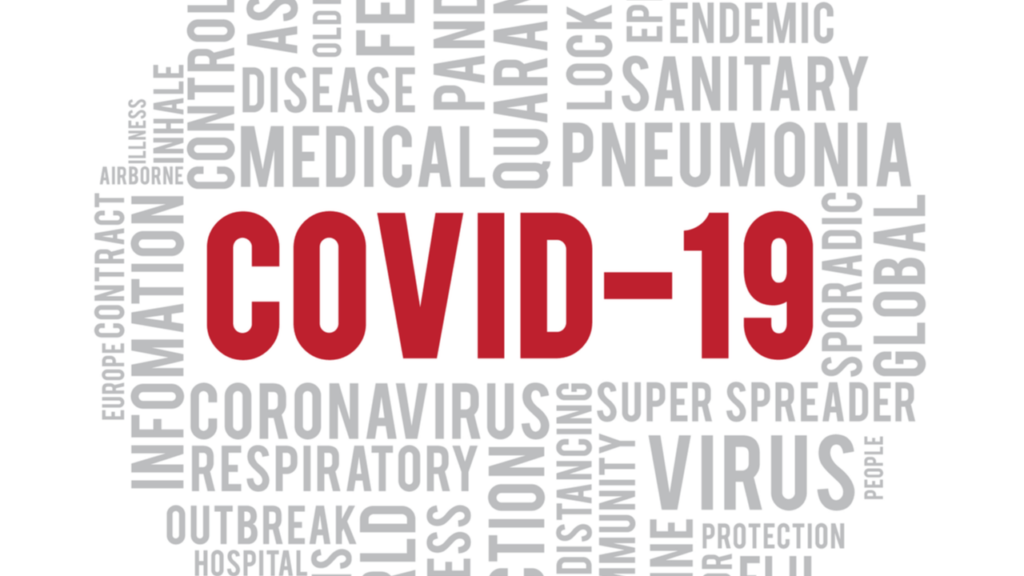In the current times, it is necessary as well as beneficial to know the terminologies related to Covid-19. Along with usage in day-to-day conversations, learning Covid 19 related vocabulary might also help you prepare for your IELTS Speaking task and ace the questions your examiner has for you in perfect English. This blog will take you through Covid 19 vocabulary words and phrases and collocations that you can use to improve the quality of your answers.
Table of Contents
Wondering if the use of masks change the way the IELTS Speaking or IELTS Listening Test are conducted?
To answer any such questions, we created this video along with the blog to help you understand all the details.
Covid-19 IELTS Vocabulary
Novel Coronavirus, or Covid-19 as it is popularly known, struck the world during November and December 2019. The virus created a crisis all over the world due to its highly contagious nature. Since then, pandemics and lockdowns have been commonly discussed topics throughout daily conversations.
As the pandemic became the new normal, our vocabulary changed as well. A major difference can be seen in how we used to speak about our day-to-day lives pre-Covid and how we speak today. There are a number of terms, both general and medical, related to coronavirus.
As the IELTS Speaking test involves having a conversation about yourself and your life with the examiner, the best path to scoring well in such a situation is to be well-versed with your Covid 19 IELTS vocabulary. Knowing the correct Covid-19 vocabulary can help you in your IELTS Writing and Reading tasks as well.
Important Terms Related to Covid-19
In the English language IELTS test Speaking task, your topic can be centred around the virus or related to it in some form or another. The vocabulary related to Covid-19 can be divided into five major segments:
- Talking about the virus
- Talking about the symptoms
- Talking about restrictions
- Talking about behaviour
Let’s go through the important words, phrases and collocations that can help you improve your vocabulary related to Covid-19 in the above-mentioned sequence.
Talking about the virus
| Word | Meaning | Usage |
| Disease | Illness or sickness | A healthy body is free of diseases |
| Contagious | A disease that can spread between two people upon contact | Covid-19 is a highly contagious disease |
| Pandemic | The spread of a disease throughout a country or the whole world | The Covid-19 virus outbreak has been classified as a pandemic by the World Health Organization |
| Incubation period | The time duration between a person’s first exposure to the disease and when the symptoms develop | The disease’s incubation period helps doctors determine the quarantine period |
| Pathogen | The bacteria or virus responsible for causing the disease | The pathogen related to Covid-19 mutates rapidly |
| Diagnose | The testing and examination of a patient’s symptoms to point out the disease that ails them | The early diagnosis of Covid-19 can be problematic as many patients exhibit symptoms much later |
| Underlying health issues | The presence of a pre-existing disease or illness in a patient’s body | People with underlying health issues face complications during the treatment for Covid-19 |
| A new strain | A genetic variant | Covid-19 is a type of strain of the coronavirus |
Talking about the symptoms
| Word | Meaning | Usage |
| Running a temperature | To have a fever | She was running a temperature during the night |
| Acute respiratory problems | Severe breathing problems | Covid-19 is known to cause acute respiratory problems in patients |
| Asymptomatic | Exhibiting no symptoms | Many people diagnosed with Covid-19 were asymptomatic |
| Fatigue | Extreme tiredness | She has been fatigued ever since she got sick with Covid-19 |
| Shallow breath | Shortness of breath or unable to breath | Shallow breath is one of the first symptoms of Covid-19 |
| Contaminated | Infected with germs | A Covid-19 patient should be in isolation to prevent contamination |

Get a Free IELTS Vocabulary Cheatsheet
With 350+ words you should know for a 7+ IELTS band score.
Talking about restrictions
| Word | Meaning | Usage |
| Border restrictions | Measures taken to control the movement of people, animals and goods across borders | In February 2020, most countries across the world started imposing border restrictions |
| Isolation/self-isolate | Being alone | It is better to be in isolation if you have been infected with Covid-19 |
| Quarantine | A period during which a person infected with a disease is kept away from others to avoid further spread of the disease | Doctors advise Covid-19 patients to be in quarantine for 14 days |
| Lockdown | A situation during which a specific area or building is closed for free movement due to an emergency | Partial lockdowns have become the new normal of today’s world |
| Fine | The imposition of monetary penalty for breaking the rules | People roaming outside during the lockdown were fined by the police |
| Curfew | A pacific time where everyone must stay indoors | These days, night curfews are imposed to limit movement |
Talking about behaviour
| Word | Meaning | Usage |
| Herd immunity | When a specific proportion of the population is immune to disease through vaccines or natural immunity | Through extensive vaccinations, our country can achieve herd immunity |
| Remote working | Working at a job outside the office | Since the pandemic, offices have encouraged remote working |
| Social distancing | Maintaining a safe distance from other people to avoid the spread of the disease | Social distancing should be followed in crowded places |
| Stock up | Buying supplies to prevent a shortage in the future | People stocked up on daily essentials before the lockdown |
Covid-19 Word Puzzle
Here’s a quick and fun word game to help you practise your newly acquired vocabulary as well. How many words did you spot correctly, let us know in the comments below!

Sample Prompts for IELTS Writing Practice
Now that you know the most popular words related to Covid and how to use them in the right context. You can use this knowledge to practise these sample questions. They are specially created so that you can use maximum covid related words and get confident in this category.
- Share your views on whether or not it is safe for companies to allow their employees to work from home?
- A few people say that it’s always better if the employees are given the choice to work from home as travelling to and from the workplace during these Covid-19 times is risky. What are your views on this?
- A lot of the employees now prefer to work from home. Do you think this will affect the way the company’s internal processes work? Do you feel it will be beneficial for the company? Or is it going to create problems for the companies in the future (in terms of security)?
- The benefits of working from home outweigh the disadvantages. Do you agree with this statement or not? Support your views with appropriate examples.
- In today’s world, most people have their PC or laptop with a good working internet connection. So it becomes easier to work from home for the employees. Is working from home beneficial for the employees as well as the company? Give reasons to support your answer. You can also include relevant examples from your knowledge or personal experience.
- Working from home can be problematic for many people. As seen in some cases, we see children causing a disturbance at home during a meeting, absence of an office-like atmosphere, coordination problems among peers, etc. But, seeing the Covid-19 world situation, companies offer work from home as an option. Do you think people can manage and work properly while working from home? Give your views along with an example.
- Remote working or working from home is not a first-time phenomenon. Do you think companies should keep hiring remote employees for managing their work? Do you think it can help the companies? Provide reasons for your answer with a relevant example from your knowledge or personal experience.
Sample Essay Writing Task
Q. A few people say that it’s always better if the employees are given the choice to work from home as travelling to and from the workplace during these Covid-19 times is risky. What are your views on this?
Ans. The coronavirus Covid-19 pandemic struck the world in 2019, and things have changed completely ever since. With lockdowns all over the world, the work culture within companies and organisations changed massively. This gave rise to the work from the home culture, which impacted the dynamic of every organisation.
Since travel became a risky aspect due to the highly contagious nature of the virus, companies resorted to imposing work from home protocols within their organisations to make sure the economy does not come to a halt. Working from home has made a massive difference in how the employees of the company work.
Work from home provides the employees with the relief to work remotely and safely. This helps them work at their own pace and avoid falling prey to the virus as social distancing measures are compromised while working in a closed space. It helps stay away from an infected person.
Along with the work from home culture came the opportunities for people to work remotely. Working remotely increased the employment opportunities for experienced people as well as freshers. People with various skill sets can now find jobs in companies worldwide while working from home.
In conclusion, the option to work from home has been a boon to employees and companies alike as it offsets the risk of catching the coronavirus and prevents the spread of the virus. People infected with the virus can now keep working in self-isolation without taking leaves from work and recovering at the same time.
Conclusion
As the vocabulary related to Covid-19 is very extensive, you should keep reading new terms and phrases related to Covid-19 to improve your grammar and vocabulary as part of your IELTS preparation. Brushing up on the above-mentioned terms and phrases can be the best way to score high in your IELTS exam.
Frequently Asked Questions
How can I improve my Covid vocabulary for IELTS?
Ans. You can improve your Covid vocabulary for IELTS through the following methods:
A. Search the meaning of words, phrases and medical terms you hear regularly.
B. Listen to audio pronunciations.
C. Watch educational videos to understand what it means.
D. Read newspapers to be updated with Covid-19-related terms.
E. Be aware of how you use these terms and know the correct way of incorporating them in conversations.
How much Covid vocabulary is enough for IELTS?
A basic vocabulary can help you score well in your IELTS exam. With regard to Covid-19, you should look up the coronavirus word list, go through the terms associated with the virus and be well-versed with them.
How can I improve my Covid vocabulary for IELTS Writing Task 2?
Ans. When you have to write your answer in response to a point of view, you should know the topic well; when it is about Covid-19, your vocab should be on point too. To improve your vocabulary for Writing Task 2, use the following tips:
A. Read many articles, newspapers and doctors’ opinions on the virus.
B. Use mnemonics or memory tricks.
C. Practice your writing skills regularly and spend time developing different perspectives related to the virus.
D. Listen to podcasts, audiobooks, radios and other audio sources that will improve your understanding of the usage of specific terms.
E. Due to the virus mutations, newer words and terminologies are coming into parlance. Staying updated is the key.















Have Questions? Get Guidance to reach your Dream University
Connect with India's finest counsellors and biggest study abroad community.
Get Guidance